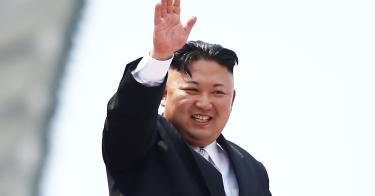Many critics of President Trump take exception to his oft-repeated phrase “America First.” They read dark isolationist impulses into it, and predict a world where the United States has simply turned its back on the world.
But the president insists that “America First” is not “America Alone.” Where our interests align with others, he reassures us that America will work together to solve problems and explore opportunities.
I believe that’s exactly what’s happening to the decades-old North Korea problem. His “new thinking framework” has led us to the upcoming June 12 summit.
In fact, as I embark on my fourth trip to South Korea this year, I can confidently say the Trump administration has created the first real opportunity for negotiations with North Korea since 1999.
We’re at this juncture for a very specific reason: Mr. Trump doesn’t limit himself to the regular constraints of established foreign policy. That is, he thinks outside the box.
The purpose of the summit, as Mr. Trump officially mentioned, is to make it clear that North Korea’s dependency and obsession on nuclear weapons is doing no one any good — not the world, certainly, and not even North Korea itself.
Mr. Trump has not led the international action to apply sanctions for sanctions’ sake. The goal of this pressure campaign has always been to persuade Pyongyang to engage in meaningful dialogue about a different future for itself and for its people.
So I welcome recent developments as potentially leading to a resolution of the nuclear issue and much more. But let me be clear: This summit will be one small step on a long journey ahead of us.
Many in Korea and the U.S. apparently expect that the situation will automatically improve after the summit. We need to lower our expectations to a realistic and practical level. There is no magic that can suddenly be performed to solve these problems.
Yes, there are specific steps to follow. Those steps will identify possible successes of the summit, as well as potential improvements in the U.S.-North Korea relationship.
But do not be deluded: It will be a long journey. As Mr. Trump tweeted, the summit is “possible progress,” but “may be false hope.”
One thing we can say for certain: We’re at this point because of a concerted, well-honed effort by the White House.
Much of the recent commentary that has stressed the president’s erratic nature and unwillingness to master policy details overlooks the fact that on North Korea policy, Mr. Trump and his team have been consistent. And they’ve achieved that rarest of governmental goals: A single, coordinated government policy.
The Department of State led with diplomacy, keeping South Korea and Japan informed and committed. The Department of Defense increased military preparations, flowing forces and supplies to the theater.
The Department of the Treasury found additional economic pressures to apply to North Korea. And America’s ambassador to the U.N. marshaled two rounds of unanimous Security Council sanctions into force.
The vice president, meanwhile, visibly and publicly castigated North Korea’s human rights abuses. The president’s daughter showed the softer side of American engagement at her Olympics appearances.
President Trump, meanwhile, has turned up the heat on North Korea with ever-tighter rounds of sanctions.
There are, of course, many things that could go wrong in the days ahead. But nothing changes the fact that all of the coordination listed above has brought us to the first real opportunity for real, lasting peace on the Korea peninsula in many years.
I’ve always been a big believer in the alliance between the U.S. and the Republic of Korea. I know there’s nothing our two countries cannot achieve when working together.
The important thing now is for the U.S., Seoul and Tokyo to stay in sync and work closely together to ensure the best possible outcome for the summit and the process that will follow. Nothing short of true peace is on the line.
This piece originally appeared in The Washington Times




